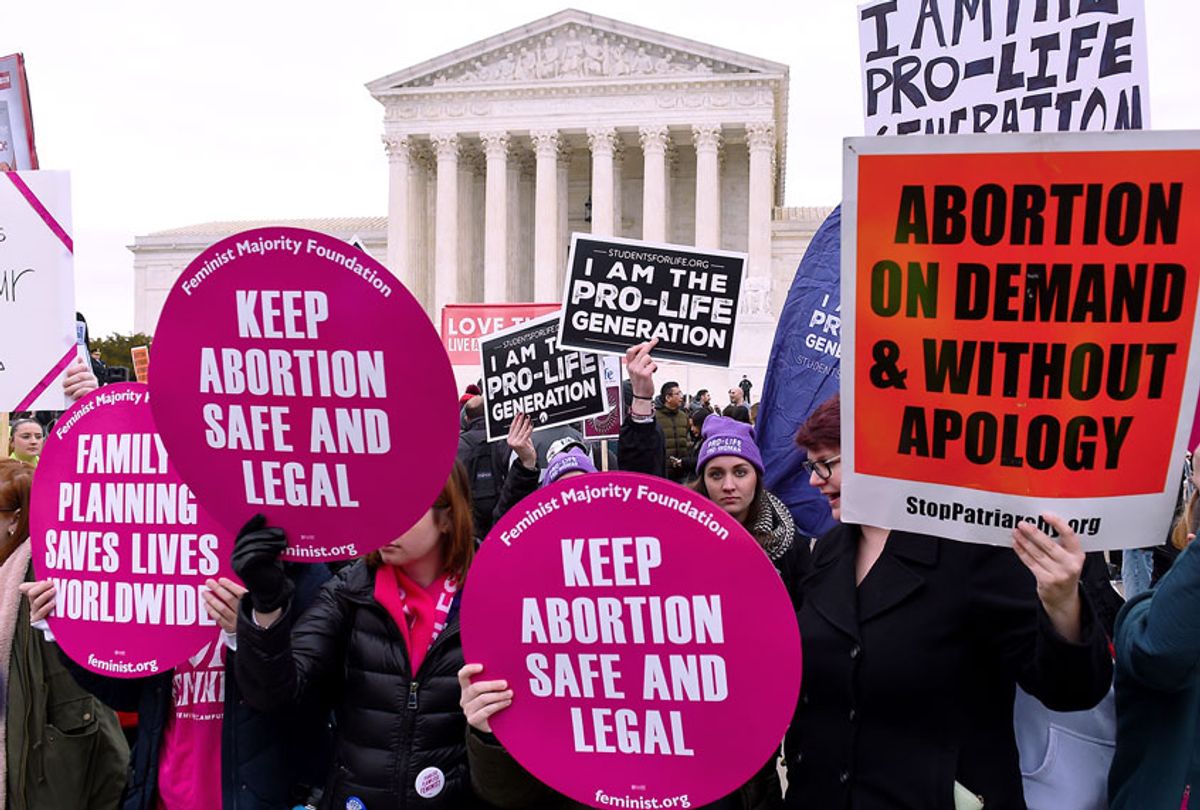Medical experts and reproductive rights advocates are challenging a Food and Drug Administration rule on a prescription drug used to provide medical abortion care in a new lawsuit, charging that ongoing restrictions requiring patients to obtain the drug in person at clinical facilities in the midst of the coronavirus pandemic needlessly threaten patients and healthcare staff alike with exposure to COVID-19.
The lawsuit, filed Wednesday at the U.S. District Court for the District of Maryland, was brought by the ACLU and the law firm Arnold & Porter with plaintiffs including the American College of Obstetricians and Gynecologists (ACOG).
The prescription drug in question is mifepristone, one of two FDA-approved drugs, along with misoprostol, used in combination to terminate early pregnancies or manage a miscarriage. Patients are not allowed to have the drug mailed to their homes; they must go in person to receive it, even though they will take it at home.
"During the COVID-19 pandemic, the healthcare community—from individual physicians to government agencies—has come together to identify safe, effective ways to provide patients with the care that they need, including through telemedicine. The FDA's decision to maintain medically unnecessary restrictions on mifepristone is a glaring exception, which results in discrimination in access and threatens to harm patients and their clinicians during a time of national crisis," Eva Chalas, MD, FACOG, FACS, and president of ACOG, said in a statement.
The new lawsuit pointes out that "clinicians in virtually every area of healthcare are relying on telemedicine" and that the Department of Health and Human Services and FDA have encouraged the use the technology, "even for highly regulated drugs—to allow their patients to forgo unnecessary in-person visits where appropriate in the clinician's medical judgment."
But the federal government's stance towards mifepristone proves to be "a striking exception," the groups said in the lawsuit, pointing out that the government does allow for the medication to be mailed "in higher doses and much larger quantities" when it is not directed for abortion or miscarriage care.
The requirement for patients to get the medication in person is especially problematic because it can lead to delays. In some cases they are "delays that will push some to the point in pregnancy when medication abortion is no longer available and an in-office procedural abortion is the only option."
The lawsuit adds:
Similarly, the requirement forces some patients suffering a miscarriage to choose between subjecting themselves to a heightened risk of Covid-19 in order to obtain mifepristone, or using an inferior treatment regimen that is less likely to effectively complete the miscarriage, necessitating a subsequent in-office procedure that, in turn, raises exposure risks.
"At every other turn during this pandemic, the federal government is trying to make it easier for patients to get the medical care they need without unnecessary healthcare visits that jeopardize their safety," Julia Kaye, staff attorney at the ACLU Reproductive Freedom Project, said in a statement. "But when it comes to patients who need to end an early pregnancy or treat a miscarriage, the administration is forcing them to travel to a hospital, clinic, or medical office just to pick up a pill they are already permitted to swallow later at home."
"This administration apparently would rather subject patients and clinicians to life-threatening medical risks than lift an unnecessary barrier to abortion care," she said.



Shares